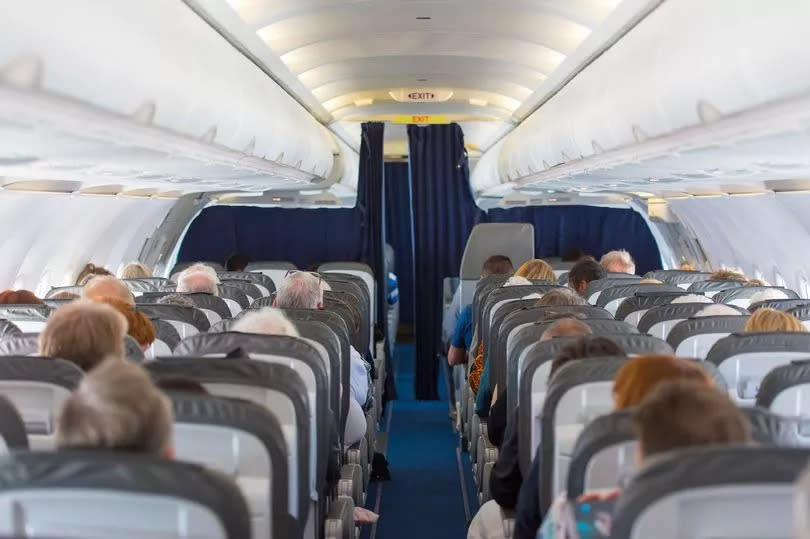Psychologist lists 10 'critical' plane etiquette mistakes passengers often make

Sharing a flight with hundreds of other passengers can be stressful, especially when they are not considerate of others.
According to experts, there are some behaviours that flyers should avoid to ensure that everyone on board has a pleasant journey.. Not only are these tips about your own personal comfort, but they also focus on conveying a sense of respect and safety, according to experts.
According to travel specialists at Ski Vertigo, there are 10 common practices that are better left at the gate. Citing advice from qualified psychologist Alex Dyer, these are "critical mistakes" that passengers can be unknowingly guilty of making, reports Bristol Live.
From being disruptive to spreading your belongings everywhere, to disregarding cabin crew or having too much booze, read below for the full list to ensure you're the best passenger on your next trip.
10 plane mistakes passengers should never make

1. Reclining your seat without checking
Suddenly reclining your seat can surprise the person behind you, potentially causing their drink to spill or damaging their belongings, such as laptops. A quick glance and a gentle recline show consideration for their space and comfort.
2. Crowding the aisle upon boarding or disembarking
Rushing to board or leave the plane creates congestion and stress. By waiting your turn, you ensure a smoother process for everyone, particularly since aisle space is limited and can quickly become overcrowded.
3. Ignoring safety demonstrations
Safety demonstrations are essential for your safety. Each aircraft might have slight variations in safety equipment or procedures. Paying attention shows respect for the crew's effort to ensure your safety and might provide critical information needed in an emergency.
4. Being disruptive or loud
Sound travels easily in the confined space of an aeroplane. Speaking loudly, playing videos without headphones, or being noisy in other ways can disturb the rest and peace of fellow passengers, especially during night flights when many are trying to sleep.
5. Consuming strong-smelling food
Aromas intensify in the enclosed, pressurised cabin. Eating food with strong odours (such as fast food, fish, or spicy foods) can be unpleasant for those around you, potentially making their flight experience uncomfortable.
6. Drinking excessively
Alcohol has a more potent effect at high altitudes, often intensifying its impact. Overconsumption can lead to disruptive behaviour or discomfort for others, and in extreme cases, result in altercations or health issues.
7. Ignoring cabin crew instructions
The cabin crew's instructions regarding seat belts, electronic devices, and other safety measures are for everyone's safety. Ignoring these can compromise the safety of the flight and show a lack of respect for both the crew and other passengers.
8. Leaving your belongings everywhere
Space on planes is scarce. Spreading your belongings beyond your assigned seat area, such as in others’ legroom or overhead bins far from your seat, can inconvenience others and slow down the boarding and disembarking processes.
9. Putting your feet up on seats or walls
This is not only disrespectful but also unhygienic. It can dirty the surfaces other passengers use and contribute to an unpleasant travel environment.
10. Neglecting personal hygiene
Given the close quarters on a plane, maintaining personal hygiene (such as using deodorant, avoiding strong perfumes, and ensuring cleanliness) is vital for a comfortable flight experience for you and those seated near you.
Alex said: "Adopting these behaviours on flights goes beyond mere etiquette; it's a matter of public health and safety. It's clear that each small action - whether it's using headphones at a reasonable volume, disposing of waste properly, or even offering a smile to a neighbour - contributes to a positive atmosphere. These gestures might seem insignificant in isolation, but together, they make travelling better for everyone by being thoughtful and considerate.
"For instance, being mindful about how quickly you adjust your seating position and using a tissue when interacting with various surfaces can significantly diminish the spread of germs. It's about fostering a safer communal space, particularly in the unique confines of an aeroplane where proximity to others is unavoidable. Simple practices like these can have a profound impact on our health and contribute to a more enjoyable flight experience for all travellers."
Don't miss the latest news from around Scotland and beyond. Sign up to our daily newsletter.

 Yahoo News
Yahoo News 
